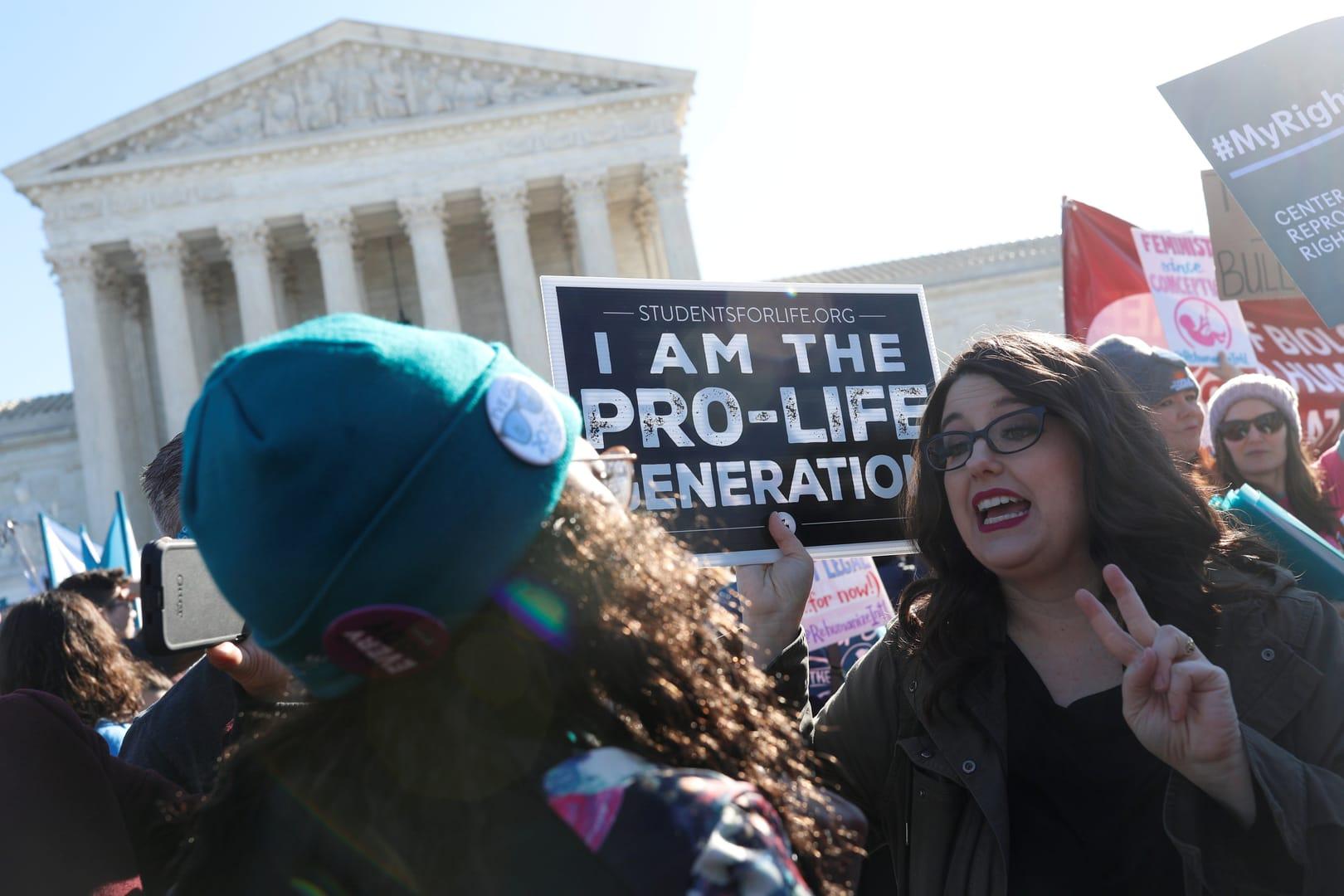[Editor’s Note: Teresa Collett, J.D., is professor at the University of St. Thomas School of Law, where she serves as director of the school’s Prolife Center. As a well-known advocate for the protection of human life and the family, Collett specializes in the subjects of marriage, religion, and bioethics in her research. Collett has published numerous legal articles on parental involvement laws and has testified before committees of the U.S. Senate and House of Representatives, as well as before legislative committees in several states on this topic. She is an elected member of the American Law Institute, and is a member of the Federalist Society’s Executive Committee on Religious Liberties. She spoke to Charles Camosy.]
Camosy: Can you tell us a bit of your story? In particular, how did you come to be involved in pro-life work?
Collett: I have always opposed abortion, but it was not until I got my law degree that I really felt like I could do much about it beyond support local pregnancy centers. As a young lawyer, I consulted various state legislators on a few things that some would characterize as “prolife” broadly – things like reforming the guardianship laws to require more protection for the elderly and disabled prior to limiting their powers to make decisions for themselves. I worked hard to make sure that strangers could not use guardianship as a tool to remove necessary medical support to people who are alone in this world, people we often call the “unbefriended elderly.” But it was not until I became a law professor that I had the time to really research and write about abortion.
As the mother of three, I was particularly interested in questions surrounding parents’ rights to be involved our young daughters’ decisions about unplanned pregnancies. I was surprised to learn that abortion, unlike almost every other medical procedure, does not require a parent’s consent before being performed on a minor. In fact, the Supreme Court has created this secret procedure known as “judicial bypass” during which a court can waive any requirement of parental consent, and parents are not even allowed to know that a proceeding is occurring.
And I know you’ve put your legal research to good use in public debates over these matters.
Yes, my research on this topic led me to testifying before various state legislatures and committees of Congress. When states passed laws requiring parental consent or notice I was often asked to help defend the laws in court. From there I was invited to assist in defending laws requiring pre-abortion ultrasound and regulating the use of drugs to induce medical or chemical abortions.

When friends ask me, “What is your professional dream? Would you rather be a Supreme Court justice that can vote to overrule Roe, or the lawyer that persuades the Court to do so?” My answer has always been, “I want to be the lawyer that persuades the Court to end abortion on demand.”
Tell us about the upcoming Dobbs Supreme Court case.
This is the first time in almost thirty years that the U.S. Supreme Court have evidenced any interest in permitting states to limit abortion prior to viability, commonly understood to occur at or near 24 weeks of pregnancy, when the child can live outside the mother’s womb. The Mississippi law before the Court only prohibits abortions after 15 weeks of pregnancy, which is less than 0.7 percent of all abortions occurring in Mississippi and less than 5 percent of all abortions in the US. A win in this case is essential to building a culture of life, in which the lives of unborn children, and all human beings, are respected and protected.
Which is the most important amicus brief being submitted to the Court for this case and why is it the one you led?
Our amicus brief for 240 Women Scholars and Professionals, and Prolife Feminist Organizations, is crucial to persuading the Court that, contrary to the Casey Court’s claim that “[t]he ability of women to participate equally in the economic and social life of the Nation has been facilitated by the availability of abortion,” women’s advancements in education, employment, and economic well-being are independent of abortion.
Can you give us the short version of the case you are making in this brief?
Based on government data over almost a half century, we show that women “surged forward as they resorted less and less to abortion.” The brief demonstrates, for example, that as abortion rates and ratios began to sharply decline beginning in 1990, the percentage of women in the workforce with college degrees increased by 70 percent, the number of women-owned businesses increased by 114 percent (more than twice the national average) and for women of color by 467 percent. We argue that women’s social and economic advancement is due to changes in cultural attitudes and circumstances, as well as laws reflecting those changes — laws that are completely unrelated to abortion.
In fact, the evidence suggests that the availability of abortion, and its foundational acceptance of the male reproductive model as the norm for full participation in society, has retarded women’s authentic equality and their full flourishing. This argument is developed in a second brief that I co-authored on behalf of Advancing American Freedom and several public policy groups, noting that pregnancy discrimination continues to be a pervasive problem in the American workplace. “[W[omen continue to suffer from pregnancy discrimination in all walks of life, from Olympic track stars to stockbrokers and big firm lawyers to Walmart bakery workers.”
Both briefs argue that unrestricted access to abortion in some instances encourages pregnancy discrimination by employers who, based on the Court’s unfounded assumptions and abortion activists’ public rhetoric, see pregnancy as just one personal choice among many. This continuing discrimination is particularly infuriating given that pregnancy discrimination has been against the law for over 40 years.
Do you have an informed sense or intuition of how the Court might rule?
My co-authors and I, like many prolife advocates, are optimistic that a majority of the Court will vote to overrule both Roe v. Wade and Planned Parenthood v. Casey. This could return the question of abortion to the states. Depending on any conditions the majority place on abortion law, this would be a great victory, but reversal could be conditioned on exceptions that “swallow the rule.” Paul Linton and I address this in my third co-authored brief.
We address the problems arising from Doe v. Bolton, a companion case to Roe v. Wade. In Doe the Court required any prohibition of abortion to include a wide-open “health exception”, effectively rendering any limitation a sham. In our brief for the Prolife Center at the University of St. Thomas, Paul Linton and I argue that, in reversing Roe and Casey, it is equally important that the Court uphold the narrow health exception in the Mississippi law before the Court, As Paul Linton explains, “The purpose of this brief was to demonstrate that an abortion law with a mental health or an undefined health exception is unworkable in practice and inevitably leads to abortion on demand.”
Even if we succeed in all of these efforts – recognition that easy access to abortion does not advance women’s equality; that abortion harms women in the workplace and elsewhere; and a broad exception to any abortion prohibitions undermines the rule of law – our work to create a Civilization of Love will not be done. Even the most optimistic predictions of what the Court might do in Dobbs does not include the Court creating a duty to protect unborn life. That will require the prolife movement to continue working toward national and state recognition of the humanity and rights of the unborn child.
Contrary to claims by the abortion industry and its allies, abortion will not become illegal throughout the United States if Roe and Casey are overruled. I suppose such an outcome could be possible if a majority of the Court declared that all unborn children as human beings are recognized as constitutional persons, and therefore protected under the Constitution, but to date, not a single Supreme Court justice has suggested support for that outcome. That means that even if we prevail, states will be free to protect or ignore the right to life of unborn children. States like Minnesota, where courts have created state constitutional rights to abortion, will be free to continue to allow abortion on demand throughout pregnancy, while states like Mississippi will be free to prohibit abortion at whatever point it time the legislature determines.
In other words, even if the Supreme Court overrules Roe and Casey, our work must continue, in our homes, our communities, our states, and our nation, as we press forward to build a culture of life.











